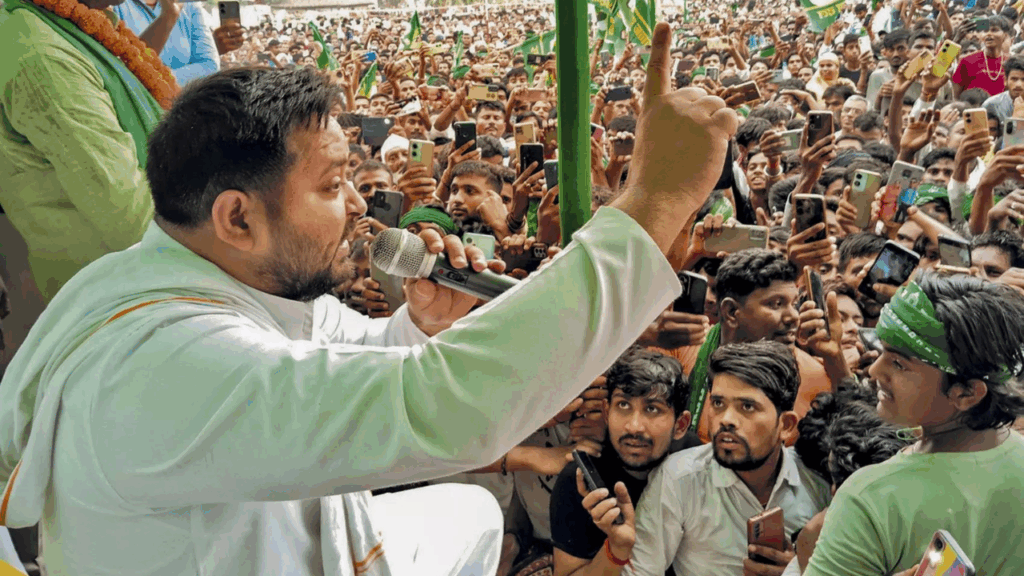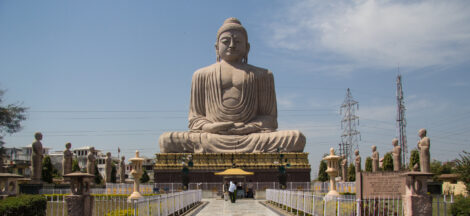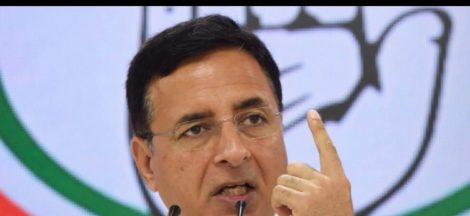BJP has launched a blistering attack on the INDIA alliance after RJD leader Tejashwi Yadav vowed at a Patna rally that his coalition would “throw the amended Waqf Act into the dustbin” if elected in Bihar. At a press conference in New Delhi, national spokesperson Sudhanshu Trivedi condemned the remark, accusing opposition parties of scheming to recast the Constitution as a “sharia script” while masquerading under the guise of “samajwaad” to mask their purported “namazwaad” agenda.
Trivedi asserted that the Waqf Act, passed by Parliament on 3–4 April and currently under Supreme Court review, commands full legal authority and must be upheld. He claimed the INDIA bloc shows contempt for democratic institutions and is employing the issue as a strategy to court minority votes. He also criticised opposition-led states like Telangana, Karnataka and West Bengal for extending Muslim reservations at the expense of SC, ST and OBC quotas—characterising it as a clandestine introduction of Sharia provisions via constitutional amendments.
Drawing parallels with the Emergency era, Trivedi suggested that opposition’s willingness to discard parliamentary legislation is reminiscent of earlier attempts to override judicial decisions, citing the Shah Bano alimony case of 1984–89 as precedent. He insisted the BJP-led NDA will uphold the values of the Constitution championed by Dr B. R. Ambedkar, pledging to resist any attempt to dilute its secular and socialist foundations.
The controversy follows a “Save Waqf, Save Constitution” rally organised by Imarat-e-Shariah and attended by leaders from RJD, Congress, AIMIM and Samajwadi Party on 29 June at Gandhi Maidan. Rally speakers warned the amendment could enable state encroachment on minority endowments. Tejashwi’s call to discard the law has triggered widespread backlash from BJP and JDU leaders, who accuse him of prioritising religious identity over equitable governance and socialist ideals.
As the Bihar assembly elections loom in October–November, this confrontation highlights the growing polarisation over minority rights and secular governance. Opposition leaders counter that the amendment threatens the autonomy and heritage of waqf boards, framing their resistance as constitutional defence rather than religious politics.
Amid mounting tensions, the Election Commission’s intensive voter roll review in Bihar has become another flashpoint. Trivedi dismissed opposition concerns, describing them as symptomatic of a “defeatist mindset” aimed at preserving ineligible voters.
Tensions are also rising around the scope of reservations. Trivedi insisted BJP and JDU represent genuine socialism, invoking leaders like Karpoori Thakur, Jaiprakash Narayan and Ram Manohar Lohia who advocated inclusive welfare. He contrasted this with opposition’s alleged tilt toward a narrow “namazwaad” agenda, which he claims hijacks land meant for public benefit and hands it to a select group of religious functionaries.
Opposition parties remain defiant. RJD spokespersons have accused the BJP of communalising the controversy, describing Tejashwi’s stand as a defence of constitutional diversity. Congress leaders affirm their bloc’s vote against the amendment in Parliament and pledge continued opposition to the law’s implementation.
The Waqf Act itself introduces sweeping reforms: centralised registration, gender quotas, digitisation and enhanced audit powers. Yet critics argue these measures empower bureaucrats while undermining waqf board autonomy—particularly through new provisions allowing district collectors to oversee disputed assets. With over 870,000 waqf properties in India, many unregistered or encroached, the stakes of governance and ownership are high.
Grassroots protests have emerged in Murshidabad, Tripura, Patna and other cities, led by Muslim organisations and waqf boards, warning of legal erosion and loss of heritage. They remain active in filing petitions before various high courts and the Supreme Court.




